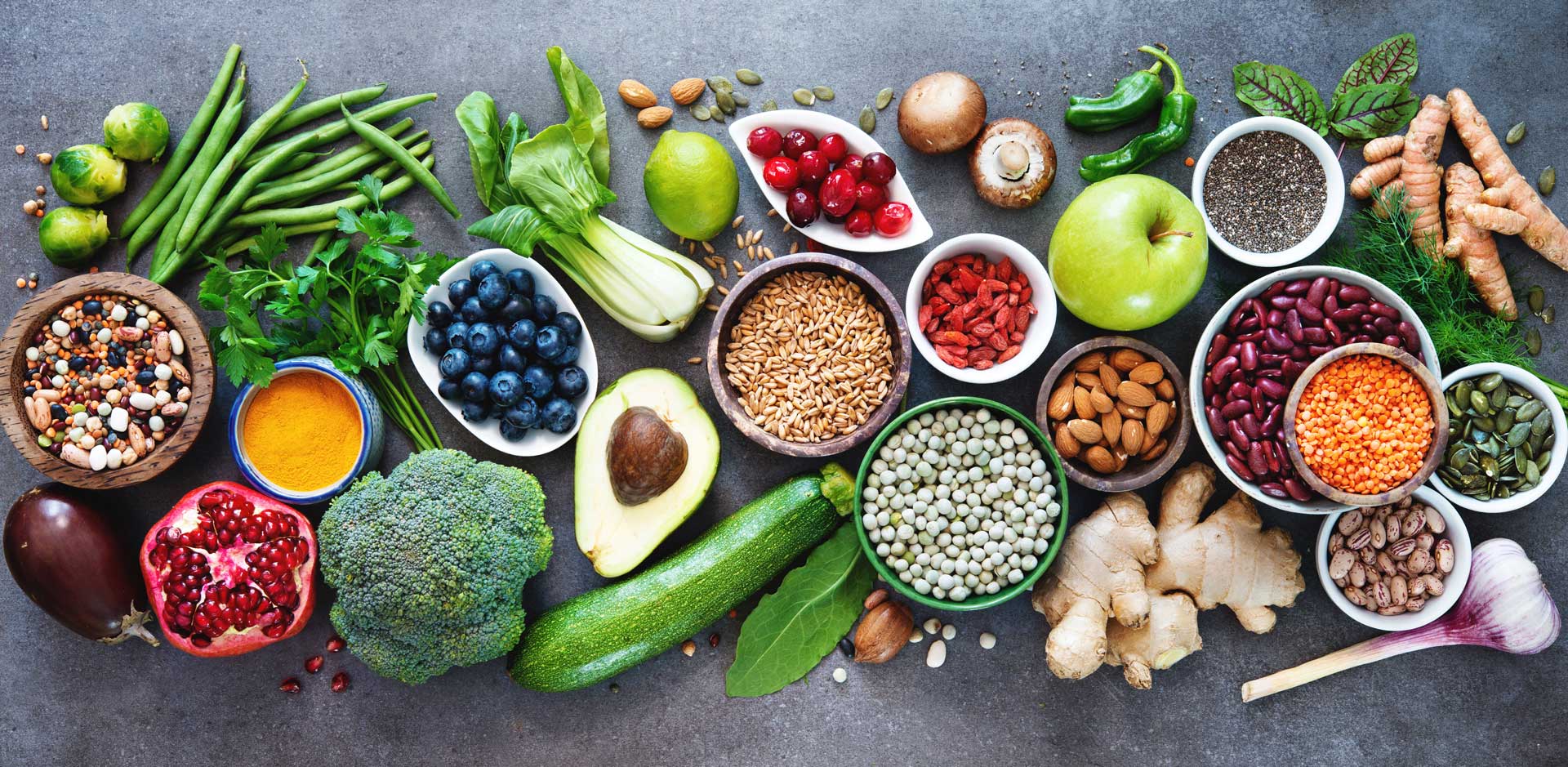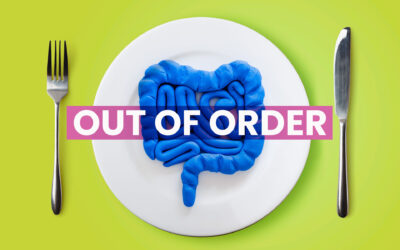The new target for vegetable intake to support good gut health
Who’s heard the mantra about ‘get your 5-a-day’ when talking about fruit and vegetable intake?
It would have been hard to miss it.
You can safely assume we are a health-conscious bunch around here, and most of us get our five-a-day. Some of you probably exceed it with ease.
Consider the following average diet… Fresh berries and yoghurt in the morning, tuna, salad leaves, tomato and avocado at lunch. A few steamed vegies for dinner along with some high-quality protein… sorted. Rinse and repeat the next day.
But is it enough for optimal gut health?
What if the 5-a-day mantra wasn’t the best way to look at your vegetable intake anymore?
Take a step back and examine your fruit and veggie intake over the week. Not only assess the amount but the variety and diversity of plant-based food you consume.
Why is this so important?
Stay with us for a second and we’ll let you in on a huge secret that is life-changing for your gut health.
There was a super exciting study done called ‘The American Gut Project.’ (McDonald, et al., 2018). But this wasn’t just any study. This project involved recruiting over 11,000′ citizen scientists’ worldwide (US, UK, Australia, and numerous other countries).
They used real-world data from ordinary everyday people. They didn’t study lab rats or an exceptionally small range of individuals with strict conditions that barely resembled the average human’s daily living experience.
These people gave poo samples and dietary information so the scientists could analyse and sequence their microbiome. The emerging information is starting to deliver greater knowledge into the impacts of different diets on our gut microbes across the population.
Why is this so interesting?
Because they used real people, eating real diets—a total game-changer for gut geeks like us at Gut Performance™.
Even though they have just wrapped up the study, there are already some significant discoveries.
They found that individuals, no matter where in the world, who ate 30+ different types of plant-based foods per week had a more diverse mix of gut microbes than those who consumed less than ten different plant-based foods per week. When we say plant-based foods, we aren’t just speaking about fruit and veggies; it includes nuts, seeds and any of the whole grains.
You might be thinking,’ duh, everyone knows that!!!!’ Hold that thought – because we may know it, but do we put it into practice?
But first, back to the ‘why.’ Science has already proven that the more diverse a person’s gut microbe, the healthier the individual (Heiman & Greenway, 2016). From a science perspective, it seems that mixing up the foods we consume exposes our bodies to various combinations of dietary fibre and essential nutrients. This diversity maximises the varieties and quality of bacteria in our gut.
How does this information play out in the real world?
The average person’s diet is limited to between 10 and 20 different plant-based foods a week. Of course, this is only estimated. It’s also assumed that most western diets are on the low side of this number.
This implies that if you grab the same type of breakfast every morning, a similar salad for lunch and meat and three veg each night – there is a big chance you will not attain the standard of 30 different plant-based foods you require every week to give your gut optimal nutrition.
We’ve all been guilty of making the same meals day in and day out. It helps us with our limited-time – not having to think. Hands up anyone who has their two or three go-to meals they make when life gets overwhelming? ????
We often believe they are healthy… but are they supplying us with the diversity of plant-based food that keeps our gut healthy?
We’ve put together some simple ideas to improve your vegetable intake and get you over the ten or even 20 plant-based food average. We aim to have you up around at least 30 different plant-based foods each week (or even better, each day).
Tips to Get Your 30 in… easy peasy
Meal Plans
Meal planning is the panacea to a healthy diet bursting full of plant-based foods. It saves you money, time, stress and having to think too hard when life gets overwhelming. It also allows you to see where you need to put more variety into your diet and helps you cut down on wastage.
Trust us; there is research to prove that the people who plan their meals before going shopping will have a higher probability of consuming a greater intake of plant-based foods daily. Gold! (Crawford, Ball, Mishra, Salmon, & Timperio, 2007) (Ducrot, et al., 2017).
Just because you plan and prep your meals in advance doesn’t mean you have to have the same things every day. Try to move away from the restrictive fad dieting habits and bring in some variety.
Even if you have been clinically diagnosed with IBS that requires FODMAP, go to the source of quality information – Monash University. You can even do an online course on how to manage your FODMAP. By the way, Gut Performance™ has been clinically approved by Monash University as a FODMAP certified food.
Shopping List Savvy
We’ve already mentioned the benefits of planning your meals and going shopping prepared. Here are a few hacks to improve your diversity of plant-based foods.
Go for a variety of the one vegetable. Instead of getting only red capsicums, choose the traffic light pack instead. Get a bag of mixed lettuce leaves instead of picking up the plain old iceberg lettuce because that’s what the kids like.
Not only do shopping lists usually get you out of the supermarket quicker (saving your valuable time), but they also save you money.
How about making a personal challenge? When you go shopping, make sure you have at least 30 different plant-based foods on your shopping list.
Dear Diary
It pays dividends to slow down and take some time to record your meals throughout the day. This allows you to easily go back and investigate whether you have reached an adequate variety over the day or week.
We are not talking about scrutinising every single mouthful you eat, but…
Note down all the different varieties of plant food you’ve eaten in a day (DO NOT focus on the calories, it’s about the range and assortment of plant-based food). At the end of the week, do the numbers and judge for yourself whether you are consuming enough variety.
You might be surprised to find you are eating a heap of fruit and vegetables, but they are the same eight plant-based foods you have daily on rotation.
Remember to include your daily Gut Performance™. It’s 100% natural concentrated food source that contains no artificial colours, flavours, preservatives or chemical stimulants. That should account for at least one plant-based food.
Fermenting Friends
Having a supply of fermented vegetables or fruits in the fridge is a great way to boost the number of plants in any meal. Everyday staples are olives, sauerkraut, fermented garlic (great for the guts if garlic repeats on you), pickles or even fermented turmeric.
Why not have a go at making your own – there are plenty of recipes online. All you need is a sterilised jar – easy to do in the oven, and some base ingredients such as assorted vegetables and whey or salt. It’s super simple and brings a unique zing to every meal that you add a spoon full on top of.
Become Friends with Your Freezer
I know it sounds like something that would be advertised in the 1960s, BUT… don’t ever shun your freezer.
It’s a great way to have healthy, nourishing food on your plate every day.
In the process, you are avoiding food waste and make cooking cheaper and efficient. Yes, you can get your bags of snap-frozen veggies, but you can even rustle up your own and put them in the freezer.
Think baked beetroot or cooked lentils thawed and put in salads. Sweet potato puree to jazz up your sauces. Bagged baby spinach and frozen banana pieces to throw into your Gut Performance™ smoothies.
There are endless possibilities to improve the diversity of the plant-based food you are putting on your plate to optimise your gut health.
Don’t forget to show us the IG love and tag us on our Gut Performance™ Instagram page with all the plant-based foods you are devouring – along with your daily Gut Performance™ intake.
We absolutely adore seeing others finding their way to optimal gut health.
References
Crawford, D., Ball, K., Mishra, G., Salmon, J., & Timperio, A. (2007). Which food-related behaviours are associated with healthier intakes of fruits and vegetables among women? Public Health Nutrition, 10(3), 256-265. Retrieved 2021, from https://doi.org/10.1017/S1368980007246798
Ducrot, P., Mejean, C., Aroumonugame, V., Ibanez, G., Alles, B., Kesse-Guyot, E., . . . Peneau, S. (2017). Meal planning is associated with food variety, diet quality and body weight status in a large sample of French adults. The international journal of behavioral nutrition and physical activity, 14(1). Retrieved 2021, from https://doi.org/10.1186/s12966-017-0461-7
Heiman, M., & Greenway, F. (2016). A healthy gastrointestinal microbiome is dependent on dietary diversity. Molecular Metabolism, 5(5), 317-320. Retrieved 2021, from https://www.sciencedirect.com/science/article/pii/S2212877816000387
McDonald, D., Hyde, E., Debelius, J. W., Morton, J. T., Gonzalez, A., Ackermann, G., . . . Knight, R. (2018). American Gut: an Open Platform for Citizen Science Microbiome Research. mSystems, 3(3). Retrieved 2021, from https://doi.org/10.1128/mSystems.00031-18







